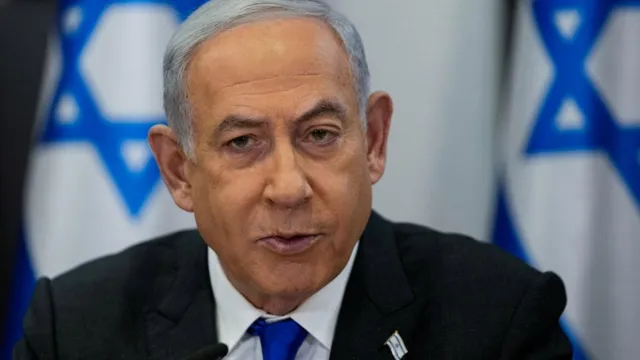Israeli Prime Minister Benjamin Netanyahu has conveyed to the United States his opposition to the establishment of a Palestinian state once the conflict in Gaza concludes. During a news conference, Netanyahu asserted his commitment to continuing the offensive in Gaza “until complete victory,” aiming for the destruction of Hamas and the return of remaining Israeli hostages, a process he suggested could take “many more months.” With significant casualties and displacement in Gaza, there is mounting pressure on Israel to curb its offensive and engage in meaningful talks for a sustainable resolution to the war.
Israel’s allies, including the U.S., along with many of its adversaries, have advocated for a revival of the long-dormant “two-state solution,” envisioning a future Palestinian state coexisting with Israel. However, Netanyahu’s public rejection of this approach and insistence on maintaining security control over all land west of the River Jordan, encompassing any potential future Palestinian state, underscores a growing divide with Western allies.
Despite the U.S. supporting Israel’s right to self-defense since the October 7 attacks, there have been calls from Western governments for restraint as the death toll in Gaza rises. The White House has sought to influence Israel’s military policy, encouraging precision-guided weapons, discouraging a ground offensive, and advocating for a two-state solution with a role for the Palestinian Authority in post-conflict Gaza.

Protesters in Tel Aviv have been calling for the safe release of Israeli hostages
Israeli Prime Minister Benjamin Netanyahu has publicly stated his opposition to the establishment of a Palestinian state once the conflict in Gaza concludes. During a news conference, Netanyahu expressed his determination to continue the offensive in Gaza until the complete victory, which he defined as the destruction of Hamas and the return of Israeli hostages. Netanyahu emphasized the need for Israel to have security control over all land west of the River Jordan, including any future Palestinian state’s territory. Despite calls for a two-state solution from Israel’s allies, including the U.S., Netanyahu’s stance indicates a reluctance to embrace such a diplomatic resolution.
The White House, in response, reiterated its commitment to working towards a two-state solution and ruled out the reoccupation of Gaza. The prime minister’s remarks align with his historical opposition to Palestinian statehood and reflect a growing divide with Western allies. The international community, concerned about the human cost of the war, may find Netanyahu’s position dismaying, while it resonates with his support base and far-right ministers.

